Filler words take away from the point you are trying to make. They make you sound less confident, more unsure of yourself, and they can confuse the person you are trying to communicate with. So how do you weed out filler words from your language? It starts with knowing what words to avoid. In this post, we’ll discuss some of the most common filler words and what to say instead, including a filler words list you can reference as you improve both your written and spoken communication.

Filler Words Meaning
What do we mean by filler words? Filler words are any words that don’t have a purpose in what you are saying or writing. The most common offenders are the various forms of “uh,” “um,” “hmm,” “uh hm,” etc., that litter your language, often while you are pausing or trying to think of what you’ll say next.
But there are many other sneaky offenders. You may be used to hearing, seeing, and using filler words without realizing it. Consider the difference between these two messages.
“Greetings, Larry. I’m just emailing you to say that I actually thought you had a highly impressive presentation yesterday. I mean, it was seriously inspiring, and I can’t wait for next week’s meeting. Literally.”
“Greetings, Larry. I’m just emailing you to say that I actually thought you had a highly impressive presentation yesterday. I mean, it was seriously inspiring, and I can’t wait for next week’s meeting. Literally.”
“Greetings, Larry. I thought you had an impressive presentation yesterday. It was inspiring, and I can’t wait for next week’s meeting.”
So many of the words you may think are adding emphasis are actually muddying the point you are trying to get across. They take away from your message and make it sound like you are less confident in what you are saying. At times, filler words are completely redundant and only serve to confuse the reader or listener.
Effective communicators are clear and concise in both written and spoken language.
Filler Words in Writing vs. Speech
Filler words occur in both written and spoken language to various degrees, and some filler words only occur when speaking. It’s unlikely that your email will be filled with ums and likes, but when speaking, much more of these filler words get through.
Plus, you can’t go back and edit what you said out loud like you can with an email or Slack message (unfortunately 😅😬).
Filler words in speech are often forgiven, but depending on the frequency, they can be quite glaring. Ever spoken to someone who pauses to say uh or um every few words? It’s quite distracting, and it makes the other person seem like they don’t know what they’re talking about, even if they do.
‘Like’ is another commonly overused filler word in speech—like, haven’t you ever, like, had a conversation with someone who, like, couldn’t stop saying like? ‘Likes’ are far less likely to occur in an email, but it doesn’t make them any less distracting when you’re speaking to someone.

In written language, filler words are more subtle and tougher to notice. They are often words that dilute other words, making you sound less sure of yourself. While extra words and flowery language might be great for poetry or your next novel, they're not so great for the workplace.
For example, saying something is “seriously highly engaging” isn’t as clear and concise as saying something is “engaging.” Any words that don't add to your point, are redundant, or take away from your confidence are words to avoid in business writing.
By eliminating linguistic fillers, you can improve your writing and speech for clearer, more confident communication. Watch for fillers in speaking and written language, and be aware of which fillers you are naturally inclined to use. Not sure which fillers you use?
Let’s discuss the common filler words you should weed out of your vocabulary, as well as overused words and phrases that hinder your communication.
Filler Words: Examples and Why They Need to Go

Um
Let’s start with an obvious one. ‘Um’ doesn’t have a use in your language. It doesn’t add anything and only serves to give you more time to convey your thoughts. But the more you fill the space with ums and ahs, the less validity your point will have to the person or people you are speaking to.
Since ums are only prevalent in spoken language, we don’t need to provide examples of what you should and shouldn't say, but take care to be aware of them when you speak. Chances are you notice ‘ums’ when they come from someone else, but not when you say them yourself.
If you don’t notice them, how do you stop saying them? Getting rid of ‘ums’ is a difficult habit to break. Since they fill in space, the best way to get rid of them is to get comfortable with making small pauses in your speech. You don’t need to fill absolutely every second of speaking time with a word, especially when it’s something as useless as ‘um.’ Instead, practice allowing yourself to take short pauses in between thoughts and sentences. Stop, take a breath, and gather your thoughts.

Like
‘Like’ is very similar to ‘um.’ The word ‘like’ litters our language, filling pauses and gaps as well as any break between sentences or part sentences.
You know what we mean, but that doesn’t stop so many of us from vomiting out ‘likes,’ especially when we get nervous. Since we can’t see all of the ‘likes’ in our spoken language as we would in a written form, they are difficult to reduce.
The key is speaking with intention. Be aware of how fast you are speaking and what you are trying to convey. If you struggle with confidence, practice at home. You can use a mirror or record yourself back. While this may feel silly at first, it’s not as silly as spewing out like after like after like.

You Know?
“You know…” doesn't add anything to your language, and it conveys to the other person that you don’t believe what you’re saying or need their reassurance. If you don’t appear to believe what you’re saying, how do you expect the person you are communicating with to believe you?
We often naturally add these types of phrases to the end of our sentences when we aren’t completely confident in what we are thinking or saying. Even when you are confident in what you’re saying, you might be tempted to add a “you know…” to the end of your point as a backup. This way, you aren’t fully committing to the idea and have an out if the other person disagrees with you.
“We should try taking the project in another direction. …you know?”
“I think the turkey club is the best sandwich on the menu. … you know?”
Adding a few filler words to the end of your point makes you sound unsure of yourself.

Just
‘Just’ is a word that’s overused in both spoken and written language. When you use the word ‘just’ to introduce or follow up a question or statement, it lessens the statement’s importance. Saying “I’m just saying,” or “I just wanted to ask,” or “just in case,” will make people not take you as seriously. It suggests what you’re saying or asking is less important than it is.
When you want to ask a question, ask it. If you have a suggestion, suggest it. If you want to make a statement, state it.
Instead of saying, “I just wanted to ask if you’re available to meet next week…” say, “Are you available to meet next week to discuss X…”
Start looking for the word ‘just’ within your vocabulary. Before you hit send on a message or email, do a quick command F or ctrl + F to search for the word ‘just.’ Is it needed? Is it adding to your point, or are you using it as filler?

Literally
Literally is a very—dare we say—literal word, but it’s overused and often used out of context. Literally has become a colloquialism that adds emphasis to a point, but the word has a real meaning.
Literally means it is actually true in every sense. The word should not be used for emphasis. You are literally reading this article right now, but your mind isn’t literally blown by your enjoyment of this article. If it was, well… let’s not go there. You might be drinking a delicious cup of coffee, but are you ‘literally’ drinking heaven on Earth? What you mean is that the coffee is as good as your perceived idea of heaven on Earth.
The word ‘literally’ is frequently misused, but even in its correct form, ‘literally’ can serve as a filler word that pulls away from your actual point. Why do you need to state that your point is literal after you’ve said it? Were we not supposed to believe you until you said ‘literally’ at the end to let us know you meant it?
Watch out for both the misuse and overuse of the word ‘literally.’
Additional Filler Words List
The filler words we covered above are not the only filler words out there. Our language is filled with pauses, meaningless words, and colloquialisms.
Here are some other filler words or phrases you may come across or could be using yourself:
- Ah
- Uh huh
- Hmm
- I mean
- Er
- Kinda thing
- I guess
- Highly
- Seriously
- Actually
- Believe me
- Kind of
- Sort of
- At the end of the day
- You know what I mean?
- Something like that
- For all intents and purposes
More From Blue Summit Supplies
💡 Transparent Communication in the Workplace
💡 7 Actionable Strategies for Better Communication in the Workplace
We’re dedicated to helping businesses improve communication, productivity, and wellness. Follow our office supplies blog for the latest trends, office strategies, product comparisons, and more.
If you have any questions or want to talk to our team, send us an email or connect with us on Twitter, Facebook, or Instagram.
 For more informative articles about office supplies, subscribe to our email newsletter!
For more informative articles about office supplies, subscribe to our email newsletter!
Never fear, you won't begin receiving daily sales emails that belong in a spam folder. Instead, we promise a fun weekly roundup of our latest blog posts and great finds from across the web. And if you lose interest, it's always easy to unsubscribe with a single click.




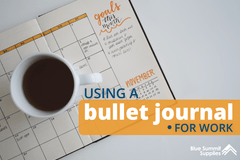


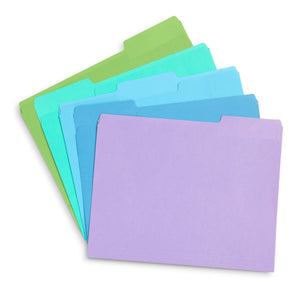
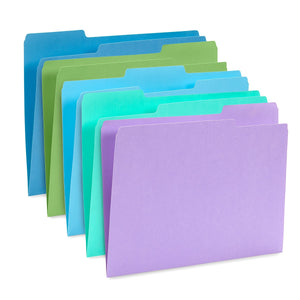
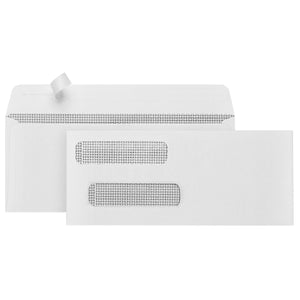
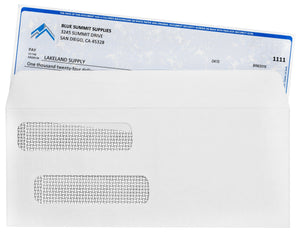
1 comment
Jill Treutel
Good article! I wish more people would, like, just be aware of what comes out of their mouths, you know what I’m saying? May I add to your list, the word ICONIC? Possibly the most overused word of 2021-22. Literally!!